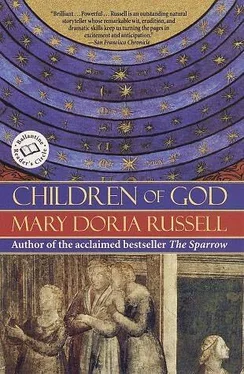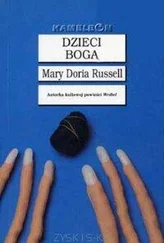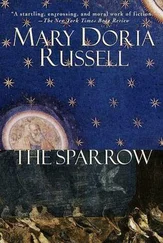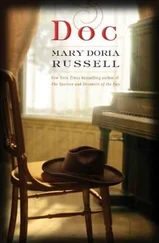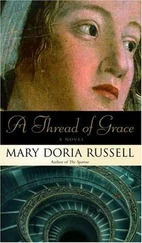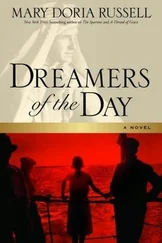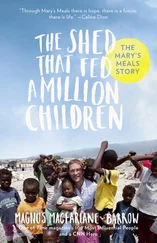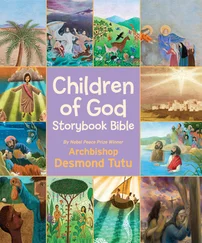Q: Why did you choose Children of God as the title for this book?
MDR: On one level, the title refers to the powerful notion that if we are all children of God, then we can become one family over time. It’s very subversive, that idea—it undermines hierarchies, erodes aristocracies. It makes the discontent of the powerless and the rebellion of the disenfranchised sacred, because it implies that each soul is sovereign and of value. And it challenges its believers to build a world where the inequities of the past are less glaring and brutal. It doesn’t matter if God is real or not—once the idea exists, it can change history. On another level, this book is about the revolutionary effect of children. The story begins with babies and ends with babies. There are babies born throughout the story. Even Cece the guinea pig has babies! There are children who are rejected, who are difficult to love, who are sure of their significance or ashamed of their heritage; there are children we get to know and others whose potential is only guessed at. Over time, each of them has some role to play in this unfolding drama, and on that level, the title implies that they are children of destiny, children whom God needed to complete the creation of the world He has in mind.
Q: The Sparrow received lavish praise, won numerous awards, and is still selling steadily and well. How much pressure does such success generate for you as a writer?
MDR: A ton. A ton of pressure! Now, I put most of the pressure on myself, and did so long before there was any hope that The Sparrow would ever be published. But I admit that I was terrified of getting reviews that started out, "What a disappointment after such a promising debut…" So the reaction to Children of God, particularly from readers, has been a great relief. Personally, I like The Sparrow better than the sequel, but that’s evidently a minority view. I get a lot of mail, and about 80 percent of the people who write liked the second book better, as did a startling number of critics. In some ways, that’s scary because I don’t know what I did differently that made most people like the sequel more. Maybe it’s the sense of closure—The Sparrow left you hanging. Children of God has a more peaceful ending.
Q: What’s the toughest thing about writing a sequel?
MDR: I thought of Children of God as the second half of one big book. So the hard part was harmonizing the plots, letting the characters change but in ways that were consistent with who they were in The Sparrow.
Q: Novelists frequently describe how their characters take on a life of their own, moving the story line in entirely unexpected directions. Were there any similar surprises for you as you wrote Children of God?
MDR: Well, Sean Fein kind of walked into my head and started kicking butt. He was a real surprise to me, and he turned out to be just what Emilio needed. Shetri Laaks was great fun—he showed up late in the book, but he had such a strong individual voice, and he kept making me laugh. But I’d have to say that the most striking example of characters taking over was in The Sparrow. I practically made Sofia Mendes for Emilio—I was just throwing them together and I had this whole scene in my mind where Sofia would go to Emilio and say, "Serve God. Love me!" And I had a big dramatic confrontation planned, except that Sofia turned around and said, "I would never do that. I’m not stupid—I know what he’d choose, and I’d never expose myself to that kind of rejection." I’m hearing her say this, right? And I’m mentally sputtering, "But, but, but—" when Sofia says, "On the other hand, Jimmy has grown up quite a bit…" I swear, my honest reaction was, "He’s too tall for you!" I was just completely flummoxed by that turn of events, but Sofia was right. And Isaac was born! Just goes to show…
Q: What do you think will be the most surprising to readers of this book?
MDR: I hope that they’ll be startled by how wrong they were about Supaari when they finished reading The Sparrow. I admit it: that was a set-up. I gave readers an opportunity to make the same mistakes about Supaari that people on Earth made about Emilio Sandoz when he first came back. Everything you knew about Supaari indicated that he was a decent, honorable man who was doing his best to cope with this wholly unprecedented situation—first contact with aliens. Then he gives Emilio to the Reshtar, and you think, "That scum-sucking social climber! That miserable, no good—" But you’re just as wrong about Supaari as Johannes Voelker was about Emilio Sandoz.
Q: Do you consider Children of God a darker story than The Sparrow?
MDR: Yes—it’s a long dark tunnel, but it ends in the light. In The Sparrow, I had Before and After. I had the leavening of the hope and plans and the anticipation of the mission to lighten up the story. But in Children of God, it’s all After. Emilio is a very angry, very bitter man, and he’s much harder to love, although Gina manages it. Many of the characters from the first story spend most of the sequel hardening their views, closing their minds, more and more seduced and comforted by certainty. There is a real difference in the mood of the two books. In The Sparrow, there are a lot of one-to-one conversations. People aren’t really sure of what they think, and they’re willing to reveal their confusion to a friend, in order to get help in sorting things out. In Children of God, there are an awful lot of people with their minds made up, and they know that if they exposed their reasoning and decisions to anyone the least bit objective, their private cover stories would be blown. They fear disclosure, and with good reason.
Q: In Children of God Sandoz is kidnapped and dragged to Rakhat against his will. And yet, at the end of the story, he makes his peace with God and with his past experiences on Rakhat. Is one of the lessons here "the end justifies the means"?
MDR: No! A crime is a crime! The fact that the victim ultimately survives the experience and redeems it somehow does not reflect glory on the criminals for providing the victim with an opportunity to grow! Guiliani and the Pope and Danny Iron Horse are guilty of an act of utter moral bankruptcy, but each of them has managed to find a semi-plausible theological reason to justify their collusion. And they certainly aren’t the first religious figures who undertake terrible deeds for high-minded reasons.
Q: Did you use any real cultures as the basis of the civilization on Rakhat?
MDR: In part, I had Romanov Russia in mind. A while ago, there was an exhibition of Faberge eggs at the Cleveland Museum of Art, and they were exquisite—just stunning, really. But even while I was admiring them, I thought, How many thousands of peasants’ lives are represented by each of these eggs? How many human beings’ bodies and souls were squandered in the accumulation of wealth by a single family, so that one man could give these things to his wife as Easter presents? I mean—there was a reason for the Russian revolution in 1917! The social injustices in pre-Revolutionary Russia were mindboggling. And yet, the high culture of Romanov Russia produced literature, art, music, and dance that have never been exceeded, and the culture that replaced it has been just as brutal with nothing artistic to show for its own bloodshed and injustice.
So, you can see the point here, I hope—the Runa revolution unquestionably ends an abusive and exploitative relationship with the Jana’ata, but at the cost of terrible suffering and of the brutalization of the Runa as well. And it’s unclear what will replace that high culture. Even so, I meant to imply that the Runa are doing just fine, thank you. Here, I had in mind the invasion of North America by European settlers. That was unquestionably a catastrophe for the native peoples of this continent, but at the same time, it was the best damned thing that ever happened to an awful lot of immigrants from around the world. The analogy is to the fall of the Jana’ata and their replacement by the Runa—this is a catastrophe for the Jana’ata, but at the very same time, it’s the best thing that ever happened to the Runa. And therein lies the tragedy.
Читать дальше
